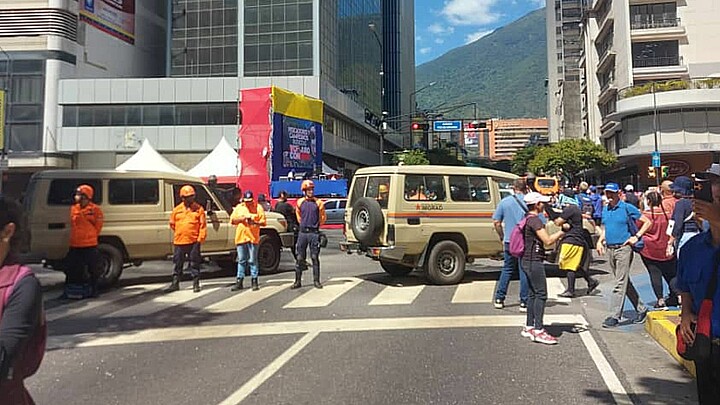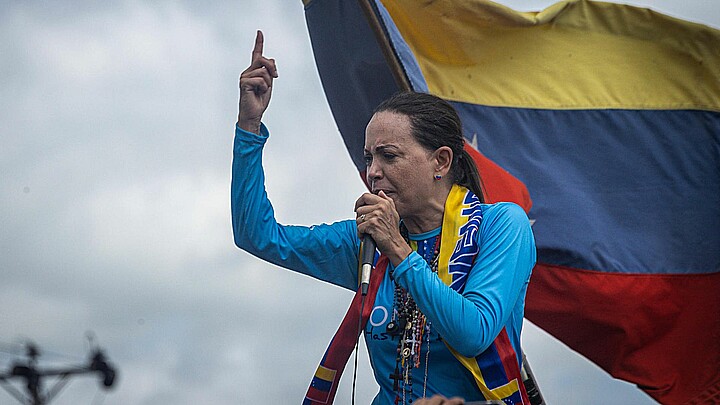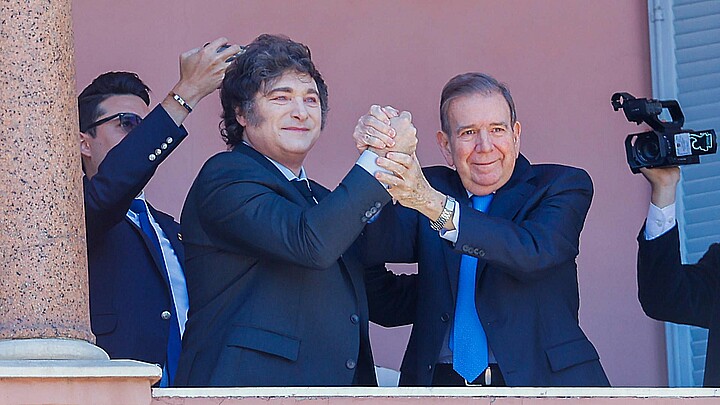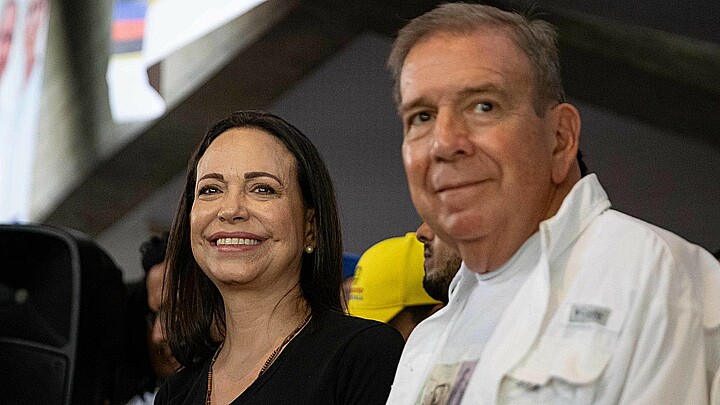Politics
Maduro celebrates 10 years in power as Venezuela suffers economic, humanitarian and political crisis
More than 7 million Venezuelans have fled the Maduro regime

March 6, 2023 6:05am
Updated: March 6, 2023 6:05am
On March 5, 2013, Venezuelans learned of the death of Hugo Chávez and soon witnessed the swearing in of his communist successor, Nicolás Maduro.
Since then, Venezuela has continued its downward spiral into one of the world's worst political, economic and humanitarian crises in its history.
In the last 10 years, the fall in oil prices has caused the collapse of the Venezuelan economy, dragging many people into poverty, hunger and crime.
After Maduro assumed the interim presidency of the country after the death of Chávez on March 9, 2013, the National Electoral Council (CNE) called for presidential elections, in which opposition candidate Henrique Capriles Radonski purportedly just fell shy of defeating Maduro with obtained 49.07% of the vote.
In 2014 the first protests against the regime began to emerge due to the lack of food and medicine, the increase in crime and continuous restrictions of freedoms. These early demonstrations left at least 43 dead, 878 injured and more than 2,500 detained behind bars.
Following the incidents at the protests, Maduro ordered the arrest of opposition leader Leopoldo López, accusing him of terrorism, incitement to hatred and property damage.
In 2015, López was sentenced to 13 years and nine months in prison for allegedly being the "intellectual author" of the riots.
Chavismo lost the National Assembly (AN) in the 2015 parliamentary elections, where the opposition obtained almost 60% of the votes and a majority with 112 of the 167 deputies.
This was the regime's worst defeat in 16 years.
In 2017, Maduro and his allies tried to recover the AN by force, provoking new protests that left 73 dead, thousands injured and hundreds detained.
Maduro won re-election in 2018 in what was widely considered a sham elections because no opposition representative appeared, except for the leader Henri Falcón.
Maduro was sworn in for his second presidential term, but most of the region's democratic countries refused to recognize him.
Opposition leader Juan Guaidó was sworn in on Jan. 23, 2019, as interim president of the nation and after the announcement, the United States and more than 50 countries around the world recognized his appointment.
On the morning of April 30, Guaidó appeared unexpectedly together with Leopoldo López, imprisoned since 2015, and a group of soldiers announcing "Operation Libertad" to remove Maduro from power.
The uprising did not fully succeed however, and López ended up asking for asylum at the Spanish embassy.
On March 26, 2020, the then U.S. Attorney General, William Barr, announced charges against Maduro and other senior Chavista officials for the crimes of conspiracy for narcoterrorism, conspiracy to import cocaine, and possession of weapons and other destructive devices.
The U.S. then issued a $15 million reward for Maduro's capture.
Since Maduro took office in 2013, more than seven million Venezuelan migrants and refugees have fled the regime, making this one of the largest displacement crises in the world, according to the United Nations High Commissioner for Refugees ( UNHCR)
While the speeches of the Venezuelan opposition frequently focus on the diaspora and the reasons for his departure, Maduro and his allies have ironically depicted those who remained subjugated under his communist rule as having an "entrepreneurial spirit."










